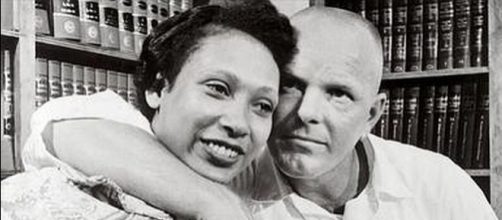Loving v. Virginia was a landmark case in the Supreme Court about Mildred Jeter, a black woman, and Richard Loving, a white man, who got married on June 12, 1958. If they both had lived, this would have been their 50th wedding anniversary. The couple went through a lot to make it easier and more socially acceptable for interracial marriages to take place today throughout the entire United States.
The Loving case
The couple was arrested a month after they got married for having violated Virginia's anti-miscegenation law and the Racial Integrity Act of 1924 that prohibited marriages between different races.
They were sentenced to one year in prison in Virginia. Their sentences were suspended on condition that they leave Virginia and not return together for at least 25 years. They moved to Washington, D.C. and could return to Virginia separately to visit their families.
The Loving case had gone all the way to the Supreme Court before it was determined that any law that prohibited interracial marriages was unconstitutional. The Loving v. Virginia case ended all cases based on interracial marriages not only in Virginia but all of the United States.
After the Loving case was settled, there was an increase in interracial marriages, and June 12 is recognized as "Loving Day" to celebrate those who married outside their own race.
Interracial couples were asked to post photos on social media. Over 2,000 couple responded using #LovingDay.
The case became so well known that several songs were written about it, and three movies were made based on the couple and their struggle to stay married. In 2013, it was cited in cases for same-sex marriages. In 2015, a novel, "L'amour des Loving" which means "The Love of the Lovings" was released by the French journalist Gilles Biassette.
Richard Loving died in 1975 at the age of 41 when a drunk driver ran into his car. In the same accident, his wife lost her right eye. She died at the age of 68 from pneumonia on May 2, 2008. The Lovings had three children, Donald, Peggy, and Sidney.
Finally unveiled, Loving v. Virginia historic marker stands tall in the heart of #RVA . Their legacy will never be forgotten. #LovingDay pic.twitter.com/PRVhCET6Ss
— ACLU of Virginia (@ACLUVA) June 12, 2017
Marker unveiled in Virginia
On June 12, 2017, a state historical marker was unveiled at the Patrick Henry Building at 1111 East Broad Street in Richmond, Virginia that once housed the Virginia Supreme Court of Appeals where the Loving case was heard.
Governor Terry McAuliffe unveiled the marker that summarized brief details of the landmark case. In 1967, the Loving v. Virginia case overturned all state laws that restrict marriages because of the race. During the unveiling, Gov. McAuliffe said that the Lovings were convicted of the high crime of loving each other.


